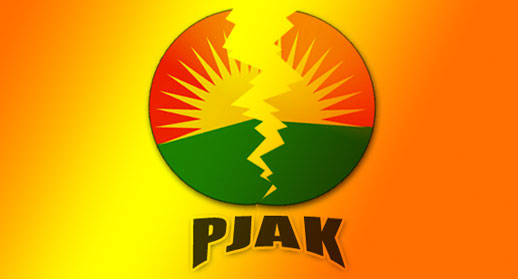|
More than a decade since the United States unleashed its military on the Middle East in the name of fighting terrorism, countries in the region have only seen terrorism expand. |
 The United States’ support of terrorist groups such as PJAK can be easily proved by monitoring these groups’ activities. The USA shares many common goals with such terrorist groups including confrontation with Iran. PJAK is just another good terrorist from the United States’ point of view.
The United States’ support of terrorist groups such as PJAK can be easily proved by monitoring these groups’ activities. The USA shares many common goals with such terrorist groups including confrontation with Iran. PJAK is just another good terrorist from the United States’ point of view.
PJAK came into being in 2004, a year after the US led invasion of Iraq. And since then it has thrived under the nose of the US forces. There are several reports indicating ongoing ties between the United States and PJAK. PJAK enjoys the most advanced military and communications technologies provided to them by the Israeli and American intelligence services.
Behrouz Tahmasbi, a former ranking member in the PKK and then PJAK says: “the formation of PJAK within the PKK dates back to the arrival of the US in the Middle East. It was about a political agreement between the PKK and the United States. When the PKK militants stepped aside from the war in 1999 and Abdullah Ocalan was arrested as well, they could not face the US and take up arms. Therefore in order to reduce the pressure of the US, the PKK gave Washington the green light by forming PJAK which was intended to fight against Iran.”
A former PKK leader, Osman Ocalan says: “The PKK planned to infiltrate into Iran through establishing PJAK with the support of the US. In other words, PJAK was created with the aim of interfering in Iran’s affairs.” terrorist group’s Former leader also believes: “The US was happy with the establishment of PJAK. It gave the militant group its full support and prevented the government of the Iraqi Kurdistan to act against them. It let the PKK and PJAK to operate freely across Qandil Mountains near Iran-Turkey border.”
Robert Baer, a former CIA operative who worked for many years in northern Iraq and who retains strong ties to the Kurdish political scene, told SPIEGEL: "I understand that the US provides intelligence to PJAK so that they are better able to protect themselves in any conflict with the Iranians. This force protection intelligence is given to them through the Delta Forces."

As the illegitimate child of the United States’ presence in the region, terrorist PJAK has always benefited from strategic political, financial and military support of the United States and its allies and also the intelligence services of those countries. Despite this fact, the relations between the USA and PJAK have always been kept hidden, informal and even denied. The most important reasons why the US tries to hide its ties with PJAK include: previous experiences of Iranian people rejecting US dependant groups, PJAK’s ties with the PKK which is the enemy of the Turkish government as a key ally of the United States in the region and the violent, terrorist and separatist nature of PJAK’s activities which could further raise public hatred against the USA.
Exclusive documents are found in recent years which leave no doubt about existence of relations between the United States and PJAK. Including to these documents, Wikileaks has revealed some US embassy diplomatic cables in Turkey and Iraq which include interesting points about US- PJAK connections.
One of the most important of such cables is a report on a meeting between Meir Dagan (the former head of Israeli intelligence service) and Nicolas Bronze, the Secretary of State’s deputy in the Bush administration. Based on this report, Dagan had suggested ethnic clashes and separatist movements as a way to confront Iran. He has had a special emphasis on the Kurd separatist groups in that meeting. The only separatist group active in Iran is PJAK. And Dagan emphasized that the mentioned groups are prepared for conducting terrorist activities.
A secret report from the US embassy in Turkey is another revealed cable. This report is about a meeting between a high ranking US General and a Turkish General. The Turkish General reminds his American counterpart that his forces have managed to take a film from one of PJAK and PKK’s camps in the Qandil mountains where a number of US soldiers are handing the terrorists some food and ammunition.
Another report is about the US embassy in Iraq. It is mentioned in the report that in a meeting between the representatives of the US embassy and Iraqi Kurdistan government, when the Kurd representative is asked to stop PKK’s activities in Kurdistan region, he criticizes the US double standard and reminds him of the US support of PJAK and Mujahedin e-Khalq organization in Iraq.
Another cable is a report about the meeting between a Kurdish commander and the US military officials in Iraq. The Kurdish commander reiterates the US efforts to insecure Iranian borders by helping PJAK and announces his readiness to help the United States to achieve that goal.
Despite the US has actually supported PJAK since its establishment until now, PJAK still remains on the US list of foreign terrorist organizations. By recognizing PJAK as a terrorist organization, the US protects itself from any moral criticism. William Beeman, an anthropologist author and Middle East expert, believes the fact that PJAK is on the US list of terrorist organizations has not prevented the United States from providing funds to the group.”
